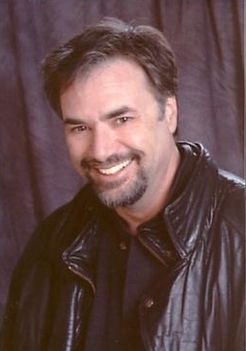I agree with most of your post, but it's worth pointing out that a "writer's room" is an American concept. It's not something that is widespread in places like the UK. Many of our shows are written without the writer's room structure so familiar to American television. There has also recently been a greater willingness for some American based productions to move away from that model.It's also not about suffering. It's just as much about the fact that CBS and Paramount own Star Trek; we do not. It's not our place to determine or dictate what constitutes "fair" guidelines, and it's not our place to declare what should be allowed and what shouldn't.
Make no mistake - this is all just as much a move by CBS/Paramount to make 1000% clear to anyone and everyone who might come along - they are the proprietors and owners of the Star Trek franchise and they will defend that ownership.
Also: the whole thing about putting restrictions on what kinds of stories are allowed being a negative is nonsense. Any writer who is honest with themselves about their talent, their ability and their craft knows that some of the best work comes from problem solving and working within limitations you sometimes can't control. Likewise, a blank page, free reign approach has its place, but it's also just as dangerously able to allow amateurs to produce dreck. Obviously this isn't a catch-all assessment, but one still worth pointing out. To wit, great stories are not written, they are rewritten, and a little editing never hurt anyone.
Alec and Rob like to boast about how professional they are, how this is a legit Hollywood production. Neither of them would last a week in an actual Hollywood writer's room because neither of them are capable of taking the kind of criticism, notes, and direction they'd receive from a showrunner or upper level EP. They want to BE the showrunners and upper level EPs without actually putting in the time to learn the craft. There's a reason that leaked Axanar script isn't fit to line a birdcage, let alone be shot. Alec Peters is not a good writer. He took a two day seminar and assumed he'd learned everything he needed to in order to tell a captivating, nuanced space opera story that would fit in to the mold of his beloved Star Trek franchise. Yet again and again and again and again we have seen him react poorly to any kind of criticism or suggestions to do otherwise than what they want. Even Christian Gossett, who has more talent, class and experience it seems in his pinky than Peters or Burnett do, understood this.
In TV, writers rooms don't work the way Peters and Burnett do; it's the process by which your boss decides what the final tone and content will be, and sometimes your ultimately being overruled by someone higher up on the food chain than you, and then going back to the drawing board and editing down whatever you have according to what has been decided upon. And then you do it all over again for your studio. And then again for your network. It's grueling and often times the story that winds up on screen is markedly different from the one you start out with but that's the nature of the beast. Half the battle is problem solving and no first draft is ever perfect, not in Hollywood, and not in your fan film.
I wouldn't mind betting that other fan scripts have been written without the writer's room set up, and from time to time some of those have been pretty good. So while I agree that Peters does not have the experience or knowledge required, or has the capacity to take criticism on his creative efforts, I'm not sure I agree that you can't have a good product without a writer's room or the hierarchical structure it provides. I think that in this case it simply boils down to Peters being one of those people who is doomed in whatever set up because he doesn't allow himself to be surrounded by critics. He reminds me a bit of how George Lucas was said to be on the Star Wars prequels, namely surrounding himself with yes men. Alas, Peters thinks Prelude is his New Hope.







